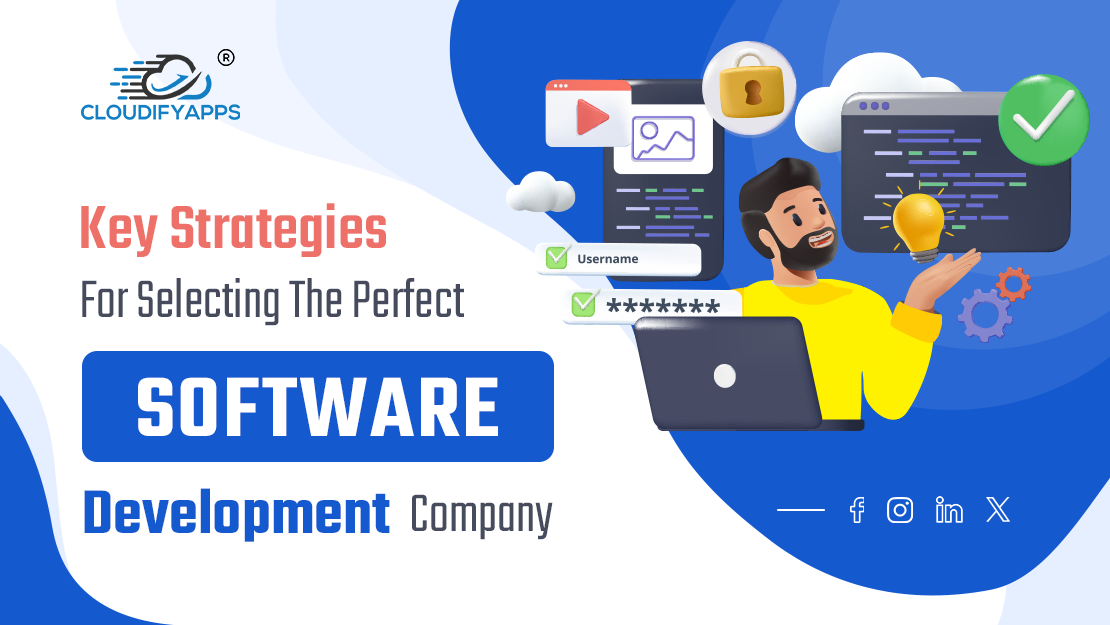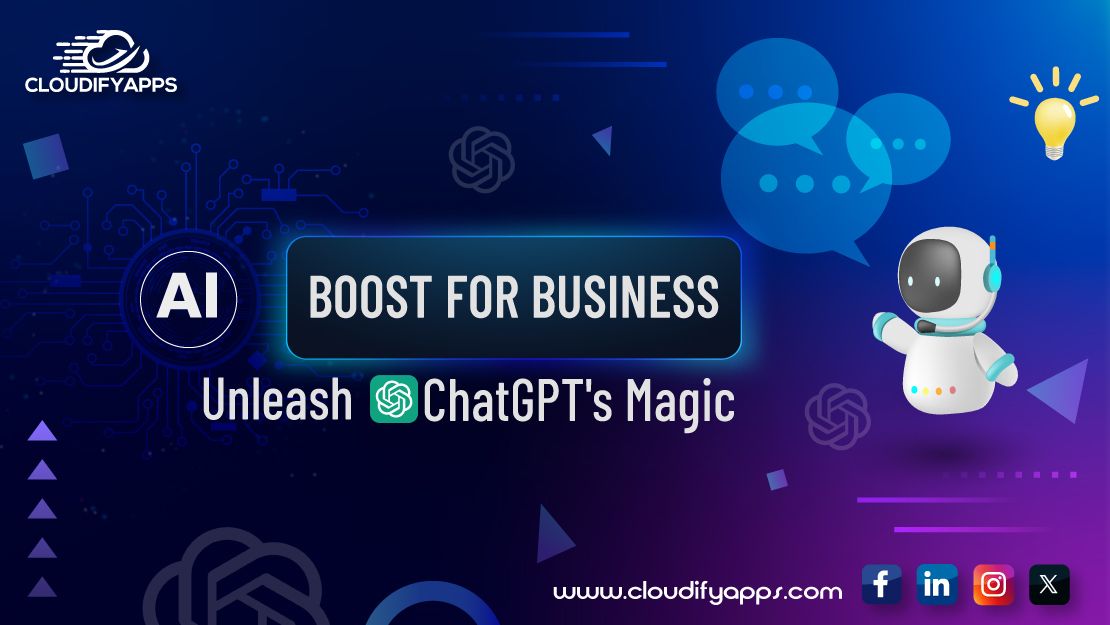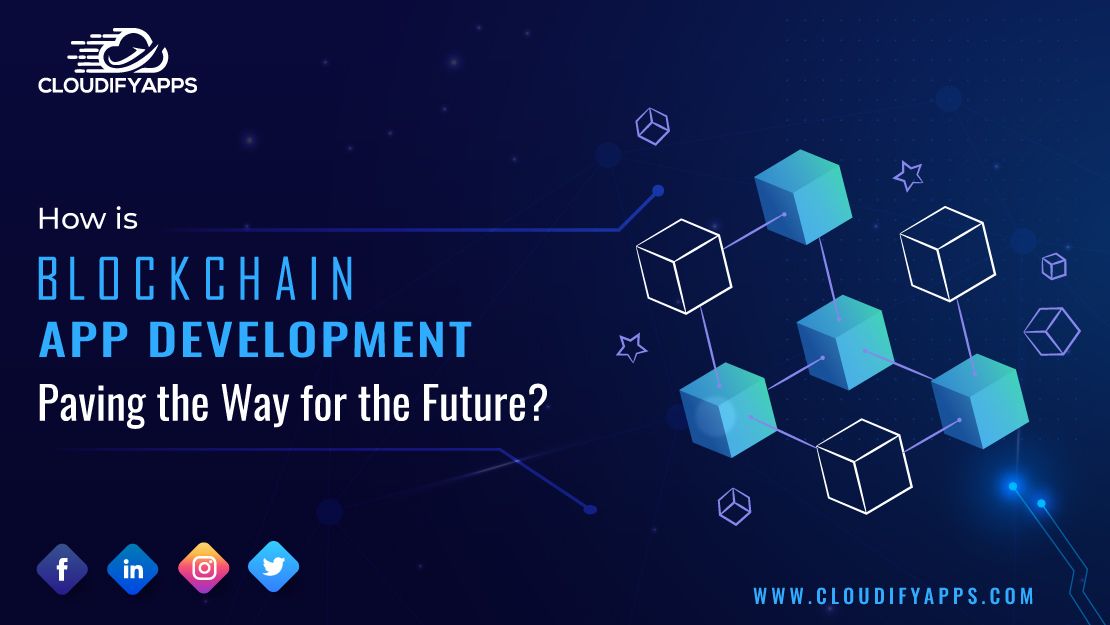
How is the Blockchain Space Growing to be One of the Biggest Technological Innovations?
Introduction
As the digital space grows in popularity, various new-age technologies are emerging. For example, blockchain technology is gaining popularity and is positioned to become corporations' next big thing. Grand View Research's most recent analysis, which estimates the worldwide market for blockchain technology will reach $5.92 billion in value by 2021, highlights this tendency.
According to the survey, India, in particular, is predicted to be one of the fastest-growing blockchain hubs and cryptocurrency marketplaces in the future. The Indian government has been aggressively supporting the application of blockchain technology. High transparency and greater use of this solution are fueling its growth. However, the government is also careful about bringing about regulations so that the technology is not misused.
What is Blockchain Development?
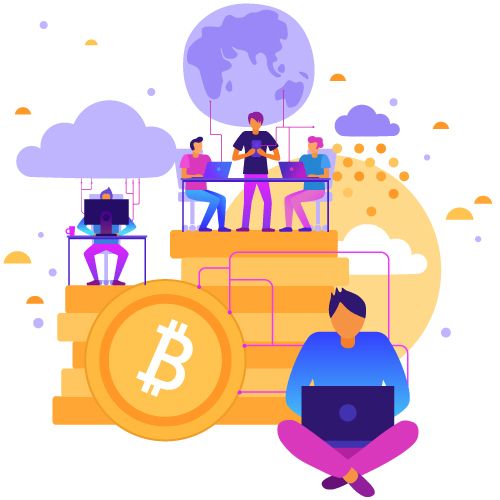
Blockchain Technology is a distributed recordkeeping system within a hash-encrypted, decentralised digital ledger. A "block" is created by connecting the previous block's hash, the transactional data, and the hash of the following block, which are the three primary components. To preserve the chain or linear order of the blocks, the cryptographic hash of the previous block, the timestamp, and the transactional data needs to be in place.
Whether it involves an asset, money, or shares, a transaction is validated once it happens and then created into a block, which is secured with a hash for the prior and the following block. Stuart Haber and Scott Stornetta came up with the concept in 1991, and Satoshi Nakamoto implemented the peer-to-peer network based on the idea in the bitcoin cryptocurrency platform in 2008.
The system was first developed to allow for safe bitcoin trading. Still, it has since expanded to be used for various purposes, from enhancing supply chain management to protecting intellectual property. In the modern day, blockchain technology, which is mainly used for cryptocurrency transactions, has the potential to transform several businesses by supplying sophisticated encryption, efficiency, and transparency within related industries.
What are the Benefits of Blockchain Development?
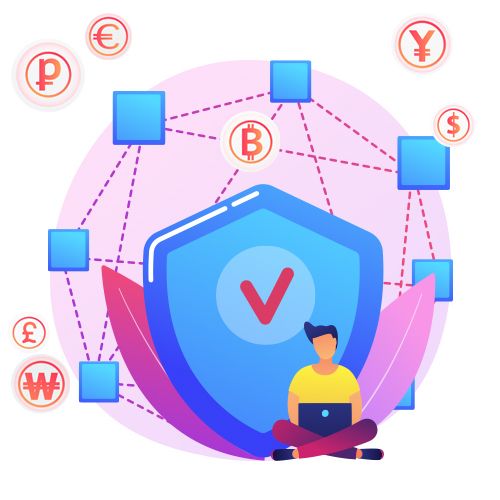
Higher Security Levels
Blockchain application development is the most apparent benefit of Blockchain application development. Business databases are vulnerable to hackers and con artists. Before being recorded in a decentralised ledger, every transaction in a Blockchain network is first examined by authorised members. It is impossible to change the data from a single location.
Many sectors have long acknowledged the blockchain development tools' emphasis on security. However, industries with extensive corporate records to cover and safeguard, including banking, health, and others, are at risk from cyber assaults.
The Blockchain App Development network enters to assist in resolving this issue. The decentralised ledger can only be accessed by authorised individuals with a particular level of accessibility. Additionally, because of its decentralised nature, it is difficult for data to be altered from a single location.
Back then, when all the company's data was stored in a single, centralised system, hackers had easy access to it and might endanger the business. These days, the system will restore itself since there are several backups all over the place, thanks to the network of computer systems that assist in maintaining the ledger.
More Industry-Wide Openness
It's conceivable that different industries will use the identical Blockchain shortly. A single system, as opposed to separate ones for various businesses and industries, facilitates public accessibility, increases transparency, and preserves Blockchain's inherent security.
Improved Traceability
Blockchain establishes a network of open supply chains that may be used to track incidents like theft, loss of property, etc. Every step of the supply chain process may be followed.
Performance Improvement
By integrating automation and removing human error, Blockchain increases efficiency and speeds up all operations. Data validation is more dependable, rapid, and efficient since transactions are kept in decentralised ledgers.
Cost Savings
For many businesses, blockchain application development proves to be a more practical answer. Future infrastructure costs may be dramatically reduced with blockchain technology. Starting in 2022, the financial services sector will see savings of $15 to $20 billion!
By using Blockchain App Development solutions, it is possible to significantly reduce the need for editing, manual pooling, and sharing tasks.
In addition, since there are no longer any middlemen thanks to the smart contract, less time and effort are required. As a result, productivity and efficiency will rise over time, allowing businesses across all industries to reduce operating expenses.
Better Reliability
The development of blockchain applications has increased the dependability of practical software and applications. Due to the Blockchain's unrivalled benefits and dependable infrastructure, these applications can benefit from Blockchain's unrivalled benefits.
The Blockchain's nodes are dispersed throughout the network of systems. Instead of employing a single server to house the ledger, several servers are scattered worldwide. As a result, the Blockchain seldom collapses since massive amounts of support are constantly transferred from one server to another.
As a result, the identical copy data is securely kept on several computers and devices in various locations. Additionally, the hackers are unable to identify each place individually.
Efficient Transactions
The advancement of blockchain technology can enhance the payment process. For instance, the mobile app supported by Blockchain can enable the quicker transactions that so many consumers desire. Furthermore, Peer-to-peer (P2P) transactions make payments far more frictionless and fast without the presence of a centralised authority or intermediary.
Additionally, waiting periods and high administrative costs associated with sending money abroad are eliminated. That results in frictionless processes where one may send cash to receivers no matter where they are without interruption due to the intricate process of the Blockchain.
How is Blockchain Technology Helping Varied Industries?
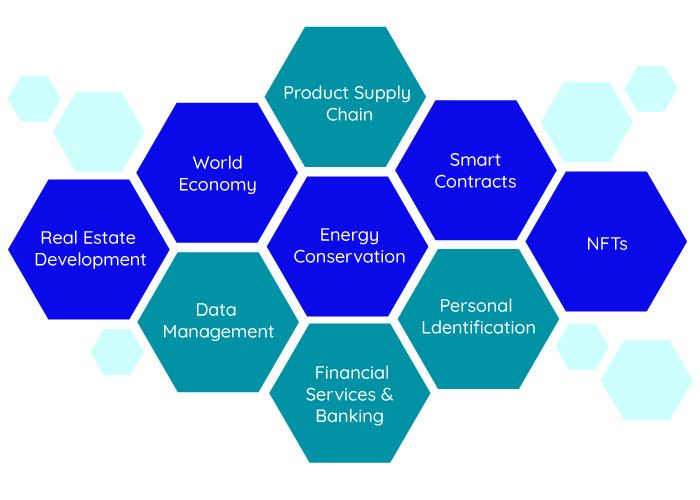
Real Estate Development
With the introduction of Blockchain, recordkeeping, organisational asset management, and funding are all being changed for the better. Starting with transparent recordkeeping, digitising real estate papers, including land titles and deeds, will enable better productivity thanks to quick access to crucial documents and increased confidence between organisations due to an immutable ledger. In addition,
Tokenisation, the capacity to assign assets to tokens, and enhanced organisational trust, will make it simple to manage assets in real estate. Due to its decentralised structure, Blockchain can perform all of these quickly, universally, and in a verifiable manner, whether through drafting settlement agreements, assigning land titles, or even transferring assets.
Real estate agencies would see greater productivity and decreased operating expenses in addition to increased efficiency due to the deployment of Tokenisation. With fully operational land registries using blockchain technology in foreign nations like Sweden, it is easy to forecast that real estate blockchain enterprises are also gaining momentum in the United States - the hub of the real estate industry.
World Economy
Currently, trading between nations is discouraged since it is an inefficient and disorganised process that slows business. International trade is likewise rife with faults, dishonesty, and counterfeiting. Adding bitcoin or similar cryptocurrencies to the mix will solve many of these issues. Much of the fraud and inefficiencies occur by combining payment methods, documentation, and regulation. This will usher in a new age marked by increased trade and improved international relations.
We are witnessing more extraordinary advancements as blockchain technology continues to develop and grow, not only in cryptocurrencies but also in several commercial applications, including smart contracts, automated tracking, and rule enforcement. As a result, Blockchain's effects on business and society are probably more significant than most people think.
Data Management
Data management is an essential component of all industries but is not an industry in and of itself. Every workflow must ensure that only authorised individuals may access the data. The development of blockchain applications can act as permission-based platforms and aid stakeholders in spotting data manipulation.
For example, a hacker won't be able to get the data even if they can access a Blockchain network and the related data. Furthermore, secure passage for the intended users is guaranteed because the data blocks are entirely encrypted.
Product Supply Chain
A specific note should be made of the application of Blockchain to streamline the Product Supply Chain, which has been under tremendous stress since the COVID-19 problem. This health crisis-related interruption has significantly impacted the supply of essential medical supplies and medications.
International multi-party transactions costing millions of dollars, whose negotiation might take months or years, are now being signed in a matter of hours with the help of dApps or Decentralised apps. The lack of confidence between the three parties—demand, supply, and financial instruments—has been the fundamental constraint.
Blockchain applications may be used as a trade and financing tool to assure distributed ledger-backed payments to manufacturers that are issued when pre-agreed production milestones are fulfilled and when items move through the supply chain.
Energy Conservation
Many businesses are considered national. As a result, privately or publicly held monopolies can exist in the market. Blockchain technology can provide a sustainable solution to the electricity issue. Localised energy management is made possible by the system's decentralisation, trustless network, and transparency.
Financial Services and Banking
The financial and banking sectors have driven the development of Blockchain applications. In reality, FinTech businesses were amongst the first to adopt Blockchain technology, while the rest of the economy dismissed it as a simple gimmick with few real-world applications. FinTech not only ingested it but also realised a profit by using services for Blockchain application development.
A secure solution for registering immutable records of the millions of transactions that take place within a Financial Services business is provided by blockchain fintech app development. The growth of the BFSI and Fintech sectors can be highly attributed to the rise of the blockchain space.
DeFi, or Decentralised Finance, is one of the most prominent examples which caused a boom in the Fintech space. The distributed and decentralised ledger architecture reduces the likelihood of scams, which have plagued the finance industry. Additionally, it is anticipated that when the technology is more widely used.
Smart Contracts
Smart contracts on the Blockchain are preset terms of an agreement between two parties to make the transaction visible and unchangeable. The contract cannot be changed at any moment by any parties since it is distributed and decentralised.
A contract may only be implemented when all of its requirements are satisfied. When the prerequisites are satisfied, all of the procedures involved in carrying out the contract begin operating automatically and without delay. These blockchain-based contracts have shown to be quite beneficial for the real estate, healthcare, and government sectors.
Personal Identification
People may correctly manage their private information by putting the "personal" back in their identification through the application of blockchain technology in the digital world. A user may easily access and manage where their information travels by using blockchains to construct a digital profile.
Peer-to-peer transaction verification is how this is accomplished in the digital world, where a transaction would be sharing our personal information between businesses. A person has total access to and control over who sees and uses their information and the ability to trace where it goes while controlling all of their personal data.
All private data is encrypted as part of a blockchain's decentralised architecture and cannot be decoded without the owner's consent. With these mechanisms in place, identity theft and inappropriate use of a person's private information should become untraceable or impossible to perform.
Exploiting personal information for commercial advantage without provided authorisation should become nonexistent. Furthermore, the deployment of blockchain methods to further secure consumers' digital data is quite likely, given the prevalence of security scandals involving consumer data in today's society.
NFTs
Non-Fungible Tokens (NFTs) are cryptographic assets, such as original works of art, music, films, and collectables registered in the owner's name. For instance, if you possess a work of art stored as a digital property on the Blockchain in your name, you will be listed as the item's only owner and have the freedom to use or sell it as you see fit.
This ownership will not be changed in any scenario since blockchain technology is immutable. The request can be altered by creating another legitimate and validated transaction if the owner sells the digital asset on the blockchain network.
NFTs are regarded as excellent investment opportunities that may be purchased, sold, or exchanged to boost your collections in your cryptocurrency wallets. Since you can implement the transaction of an experience - whether digital collectables or real-world matters, hence securing NFTs is growing in popularity everyday.
What Platforms Should be Used for Blockchain App Development?
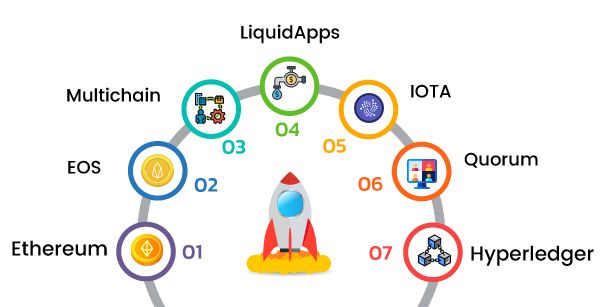
Ethereum is a platform (and operating system) with open-source and public functionality for blockchain App development and initial coin offerings (ICOs). Every blockchain app development business starts with it when creating a blockchain app because it is versatile and adaptable, unlike bitcoin.
EOS: The goal of the EOS platform is to provide smart contract functionality, decentralised application hosting, and decentralised storage of enterprise solutions, which addresses the scalability difficulties with Blockchains like Ethereum and Bitcoin and also eliminates all user fees.
Multichain: It is a platform that enables developers of blockchain applications to construct and implement private blockchain solutions for usage within or among many companies.
LiquidApps: DAPP Network's creator, LiquidApps, just unveiled DSP 2.0, a platform that is far more adaptable and potent. In addition, they can create a variety of dApps.
IOTA is a DLT-based open-source technology designed to deliver quicker and more secure payment services amongst interconnected IoT devices. This platform, which builds payment systems, uses directed acyclic graph (DAG) technology and offers distinctive features, including free transactions regardless of the transaction amount, quicker confirmation times, handling an infinite number of transactions at once, etc.
Quorum: It is an open-source Ethereum-based DLT and smart contract platform.
Hyperledger: The open-source Hyperledger platform is used to construct cutting-edge blockchain applications. For instance, many companies are developing IoT-based blockchain solutions or supply chain management blockchain apps.
How Much Time and Money are Needed for Blockchain Application Development?
After reading all this information, you may wonder how much it will cost to create a blockchain application. Given that the cost of Blockchain App Development relies on the needed work, it is incredibly challenging to predict the precise price in advance.
The price of developing a blockchain application varies depending on several variables. The network will need to be built from the ground up using C++, Java, Python, Solidity, or another technology, which will take around a month.
It doesn't matter what kind of technology is employed. Depending on various technological factors, the price will range from $15,000 to $50,000. Therefore, it is best to discuss your app idea with a Blockchain App Development company and get a precise breakdown of the costs of developing a blockchain app.
Conclusion
This article about creating Blockchain App Development is intended to be insightful. You must have begun drafting your blockchain app development concept. Vitalik Buterin, the founder and creator of the Ethereum Blockchain platform, says that the future is not very far when the blockchain space will dominate the lion's share of the real world. Thus, you should also start investing in cryptocurrency and profitable tokens, dApps, DeFi applications, etc.
Popular Tags
Recent Posts
Why AI-Powered Software Development is the Key to Unlocking Business Growth in 2025
AI Application Development in 2025: What Every Business Should Expect and How to Prepare
How To Choose The Right Software Development Company For IT Resource
ChatGPT for Commercial Use: How to Enhance Any Business With AI
We are at






















